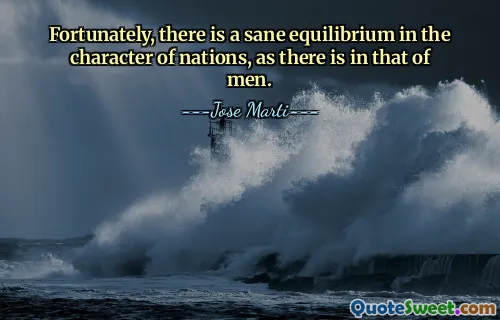The tears of the world are a constant quantity. For each one who begins to weep somewhere else another stops. The same is true of the laugh.
In Samuel Beckett's "Waiting for Godot," there is a poignant observation about the nature of human emotions, particularly sadness and joy. The quote suggests that the world's emotional landscape is unchanging; for every instance of sorrow, there is a corresponding moment of happiness emerging elsewhere. This cyclical relationship between laughter and tears reflects the balance and interplay of human experiences.
This idea implies a sense of universality in emotions, indicating that while individuals may feel isolated in their suffering, they are part of a larger emotional continuum. By acknowledging this connection, we can find comfort in knowing that others share similar feelings, and emotional states are transient, contributing to the shared tapestry of human life.
